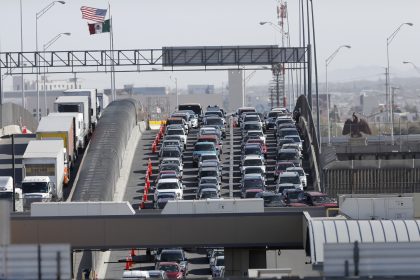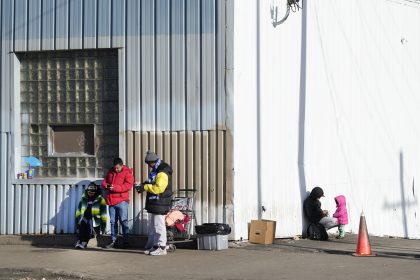Cuban Deportations Have More Than Doubled in The Past Year, New Data Shows

More than twice as many Cubans were deported this year compared to last year, according to new data released by U.S. Immigration and Customs Enforcement.
On Wednesday, federal officials released its latest deportation statistics, which showed that 1,179 Cubans were detained nationwide during the 2019 fiscal year, compared to last fiscal year’s 463. In 2017 there were 160 arrests — that’s a 155% increase of Cuban national deportations within the last year and a 600% increase in the last two years.
The data does not break down the arrests by state or region.
“Yes, now we can remove Cuban nationals, that’s why you see the significant jump,” acting ICE Director Matthew T. Albence told the Miami Herald during a news briefing Wednesday. “Cuba cooperates with us in issuing travel documents, which they didn’t previously do.”
The targeted deportations are just a small piece of the Trump administration’s plan to empty out the country of undocumented immigrants, though the successful removals are the fruit of an agreement signed by both the U.S. and Cuban governments under former President Barack Obama in his last days in office.
In September, ICE successfully executed one of the largest Cuba repatriation missions in recent history where 120 Cubans transported on a single flight from New Orleans. At the time, sources told the Herald it was just the beginning of the administration’s efforts to detain and send undocumented Cubans back to the island.
The migration accord — or “Joint Agreement” — dated Jan. 12, 2017, mandates that Cuba has to accept all Cuban nationals that enter the U.S. as of that date, or who are discovered to have remained in the U.S. illegally.
“The United States of America shall return to the Republic of Cuba, and the Republic of Cuba shall receive back all Cuban nationals who … are found by the competent authorities of the United States to have tried to irregularly enter or remain in that country in violation of United States law,” the document says.
The international deal is the same deal that terminated “wet foot, dry foot” — a decades-old policy that allowed Cubans who arrived on U.S. soil without visas to remain in the country and gain legal residency.
Despite the agreement, Cuba still has discretion to accept or reject Cuban nationals, specifically those that immigrated to the U.S. before the migration accord was signed in January 2017. Cuba has 90 days to accept or reject taking back one of its citizens. If they are not accepted, ICE has no choice but to release the person back into the community under an “order of supervision,” where they would have to check in as many times as the government asks them to.
As of Aug. 31, more than 39,000 Cubans in the United States are facing orders of removal for criminal convictions or immigration violations. Most of those are living freely under orders of supervision, which require them to check in at least once a year.
Over the years, special privileges for Cubans have withered away. The White House has tightened restrictions on travel to Cuba, allowed lawsuits in U.S. courts against anyone that profits from Cuban properties seized by the Castro government and slapped sanctions on cargo ships that deliver Venezuelan oil to the island.
“It’s outrageous. Given the current president their strict blatant anti-immigrant policies, Cubans who used to feel almost sacrosanct in this country and in Miami are getting some very unpleasant surprises,” said Mario Cano, a long-time South Florida immigration attorney.
Immigration experts believe some Cuban nationals are more at risk of apprehension than others: people with criminal records or who enter through the southern border, as well as people who entered the country during the Mariel boatlift in 1980 — a mass emigration of Cubans who traveled from Cuba’s Mariel Harbor to the United States — as mentioned in the migration accord.
“Our ‘abuelos’ and ‘abuelas’ are technically at risk but it’s not likely,” Cano said. “Cuba is not looking to take back people who are elderly or people who will be a tax or burden on their system. People with criminal records will most likely be detained, but whether or not Cuba will choose to accept someone who has committed crimes, which can potentially be an expense to the Cuban system, is another story.”
Cuban deportation stats aren’t the only ones that have skyrocketed. According to ICE’s data, Nicaragua’s deportations have risen from 879 to 2240 in the last fiscal year. El Salvador’s numbers went up from 15,450 to 18,981, and Honduras’ rose from 28,894 to 41,800.
“This is a direct result of the crisis at the border,” Albence said. “That’s no secret.”
———
©2019 Miami Herald
Visit Miami Herald at www.miamiherald.com
Distributed by Tribune Content Agency, LLC.























